Nikola Gruevski, since November 12 a fugitive seeking political asylum in Hungary, is more famous as Macedonia’s autocrat for eleven years between 2006 and 2017. He won Macedonia’s Parliamentary election in 2006 on a technocratic agenda and deceived many people that he would improve the country’s economic situation. The NATO 2008 Bucharest Summit made his 2006 campaign promise to bring Macedonia into the EU and NATO unachievable, a pivotal moment in Gruevski’s VMRO-DPMNE turning an even more nationalistic page. His trademark can still be seen around the streets of Skopje, Macedonia’s capital, where he built numerous monuments and erected baroque facades on the Socialist buildings in the city center with the aim of rendering an identity that is much older than the Slavic one. By the time he was thrown out of power, Gruevski had managed to capture the state in what could be characterised as clientelistic authoritarianism.
The 2015 - 2017 political crisis began with the release of wiretapped conversations of Gruevski and his high-level officials that revealed corruption, rigging of elections, and even an attempt to cover up a murder. The wiretapping scandal brought large masses of people to the streets who, in a sign of revolt, threw paint on the “new antique” monuments and defaced the new facades. These protests became famous as Macedonia’s colour revolution. The leader of the opposition SDSM, Zoran Zaev, was the person who started to reveal the wiretapped conversations in the media; thus, SDSM was the prime beneficiary of the colour revolution.
The European Union’s three-stage (or, from today’s point of view, even four-stage) involvement in Macedonia’s gloomy political situation provokes ambivalent feelings about the EU’s handling of Macedonia’s rule of law and democratisation even among strong EU proponents.
First, the EU was latently complicit in Gruevski’s state capture, as the European Commission issued mostly positive annual reports before the political crisis began. In 2014, SDSM, then the main opposition party, decided to boycott the election results, claiming the elections were not conducted democratically, a claim that the OSCE/ODIHR mission to a large extent supported in its election report. The Commission issued a very positive annual report in which it quoted just a small portion of the extensive OSCE/ODIHR election report and overlooked the election irregularities, a blunder that Commissioner Johannes Hahn had also reiterated in a statement. In the meantime, around 75% of all EU funds for Macedonia from the Pre-Accession Instrument continued to flow into the Macedonian institutions.
Second, once the crisis had begun, the EU was quick to react. In less than a month, the retired European Commission Director Reinhard Priebe and his team were dispatched to Macedonia where they investigated the reasons behind the corruption cases implicated in the wiretapped conversations and issued a technical report with urgent reform priorities the country had to undertake. A month after the report, Commissioner Hahn together with three Members of the European Parliament (Howitt, Kukan and Vajgl) visited Macedonia. They gathered the then four main political parties around the table and negotiated the so-called Przino agreement, which imposed scheduling of early elections under the conditions that the election register be cleaned and a Special Public Prosecutor who would look into the scandal be appointed.
However, during the same time, the EU was officially mediating the Macedonian political crisis, key figures such as Commissioner Johannes Hahn kept emphasising that the EU’s priorities lie in different aspects, such as the migrant crisis, for which they needed a stable Macedonia, overlooking the undemocratic tendencies of the then Macedonian leadership. It took Commissioner Hahn a long time to understand that he might have to rearrange his priorities and make sure that the Przino agreement is respected and that the Special Public Prosecutor finally takes office. Once the political crisis allegedly ended and the Social Democrat SDSM took power, the EU found a much more loyal partner in Macedonia.
The third and most optimistic phase of EU involvement in Macedonia was during this year, as both high EU officials and heads of EU member states visited Macedonia and supported the country’s diplomatic readiness to negotiate a deal with Greece and change its name with the promise of EU and NATO integration. Zaev’s handshakes with Juncker, Mogherini, Merkel and other prominent European figures, juxtaposed to the previous EU visits with the aim to reprimand Gruevski’s autocracy and ensure early elections took place, were a clear-cut sign that Macedonia is on the right path; a sign that Macedonians had not seen in a very long time.
However, the EU’s comments once VMRO-DPMNE MPs voted to support the agreement with Greece, are perceived as somewhat unnerving as the messages are of an ambivalent nature. These are the same MPs who were implicated in either the wiretapping scandal or the “Bloody Thursday,” a coup d’état attempt in Macedonia’s Parliament in 2017. For example, one of the most prominent former European People’s Party MEPs, Mrs. Doris Pack, reminded Gruevski’s successor that he should treat the VMRO-DPMNE MPs who supported the agreement with respect. However, in the same tweet, she expressed regret that these people were called criminals in Macedonia. While the EU’s presumption of innocence holds water, failing to remind the country’s leaders that they must not back from making sure that justice should be served is a thorn in the EU’s side in an otherwise noble cause.
A similar message came from the EU after Gruevski fled the country. Gruevski, once he was convicted for two years in a corruption scandal, fled Macedonia without a valid passport and filed for political asylum in Hungary. Whereas asylum is nowadays typically used in cases where people are fleeing physical danger, such as war, fleeing political persecution is also a common ground for asylum. However, the wiretapped conversations implicated Gruevski enough to make it crystal clear that this is not an example of fleeing political persecution but fleeing accountability.
The two years on Gruevski’s sentence are expected to increase, as he has been implicated in another four corruption cases. Hungary’s Prime Minister and Gruevski’s role model, Viktor Orbán, claimed that welcoming Gruevski is not a sign of meddling in Macedonia’s internal affairs, but that everyone is entitled to file for asylum if they feel as if they face political persecution in their home country. Gruevski’s asylum application has not been processed yet, but there has not been a single message by any EU high official reprimanding Orban’s magnanimity toward the Macedonian political criminal. The only message on this event that came from the European Commission was a reminder that the asylum application process is at the discretion of each individual country. Thus, the Hungarian authorities have all the power to decide if Gruevski qualifies under international law to receive political asylum status. On the other hand, no EU official has reminded the Macedonian authorities that they are the ones who should be held accountable for letting Gruevski escape without a valid passport.
The EU, even though it officially encouraged Macedonia to investigate the wiretapped corruption scandals in 2015, remains quite passive when it comes to the implementation of those provisions. The EU has to take a more explicit stance and cut down on euphemisms when addressing its candidate member. Not rebuking Orbán for accepting Gruevski translates into tacitly condoning Macedonia’s inability to instate justice. Stressing that the implicated (for either corruption or terrorism) VMRO-DPMNE MPs who supported the Prespa Agreement in Parliament must not be called criminals might be willfully turning a blind eye to Macedonia’s (un)rule of law if at the end these people get amnesties for their decision.
The EU has to keep a watchful eye on its candidate. The euphemisms in the 2015 EC report that became an encouragement for Gruevski should not be forgotten, let alone repeated. SDSM’s attempts to bring the country into the EU, regardless of how noble and beneficial for the country these attempts might be, must not circumvent the country’s rule of law. When EU accession is on the table, the Machiavellian “the end justifies the means” strategy cannot be an option, especially if one of the “means” ends up being in complete violation of the EU’s core accession criterion: the rule of law.
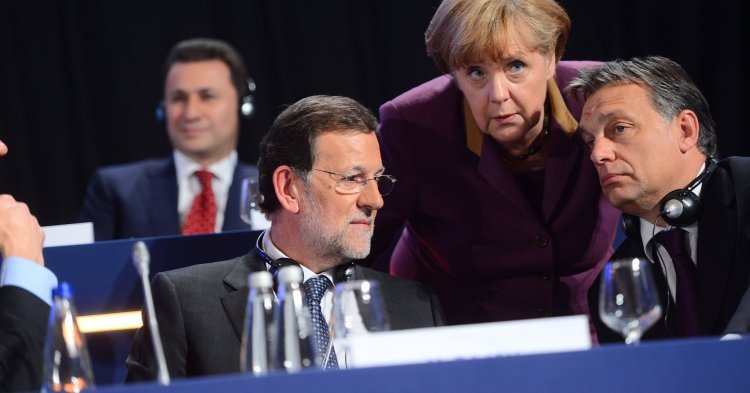
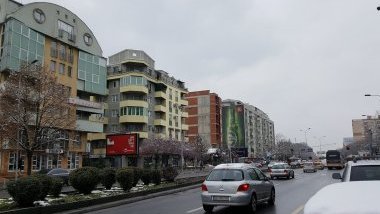

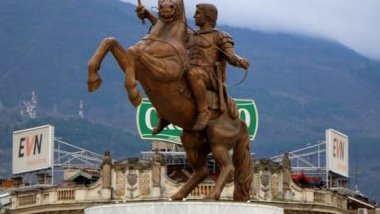
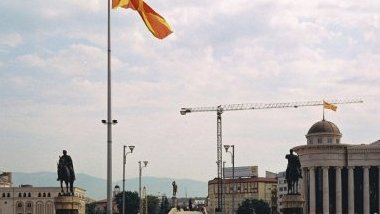
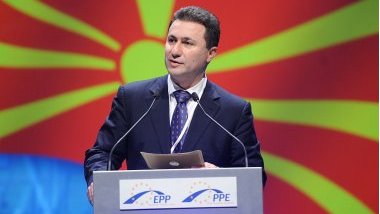
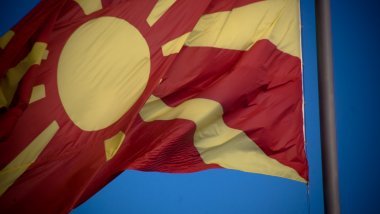
Follow the comments: |
|
